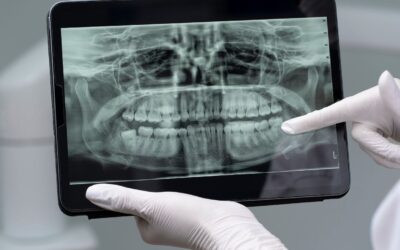Toothaches can occur unexpectedly and may leave you wondering, “Why are my teeth aching all of a sudden?” A sudden toothache can be a sign of various underlying issues, ranging from cavities to gum problems, or even more serious health conditions. Understanding the potential causes of this discomfort can help you find the right solution and seek timely treatment.
In this blog post, we will dive deep into the reasons behind sudden toothaches, explore the symptoms you may experience, and provide helpful advice on how to deal with the pain and prevent future occurrences. If you’ve been struggling with unexpected tooth pain, keep reading to discover what might be causing it and how you can address it.
Common Reasons Why Your Teeth Are Aching Suddenly
Cavities and Tooth Decay
Cavities are one of the most common reasons for sudden toothaches. When bacteria break down the enamel, a small hole is formed, leading to a painful response when exposed to cold, heat, or pressure. If left untreated, the decay can spread deeper into the tooth, causing intense pain and further damage.
Gum Disease (Gingivitis or Periodontitis)
Gum disease occurs when plaque and bacteria build up along the gum line, causing the gums to become inflamed. Gingivitis is the early stage, and if not addressed, it can lead to periodontitis. Both conditions can cause sudden discomfort and sensitivity in the teeth, particularly when brushing or chewing.
Tooth Sensitivity
People with tooth sensitivity experience sharp pain when consuming hot, cold, or sweet foods. This sudden ache occurs when the protective enamel wears down, exposing the tooth’s nerves. While the discomfort is temporary, the sensitivity can become severe if not managed.
Cracked or Chipped Teeth
Cracks or chips in your teeth can develop from accidental trauma or biting down on hard objects. These fractures expose sensitive parts of the tooth, leading to sudden pain when chewing or when the tooth is touched.
Understanding the Symptoms of Tooth Pain
Common Symptoms Associated with Tooth Pain
Toothaches can vary in intensity and duration, and they may be accompanied by different symptoms. Understanding these signs can help you determine the cause and seek proper treatment. Some common symptoms include:
-
Throbbing pain in the tooth that worsens over time
-
Sharp pain triggered by temperature changes (hot or cold) or eating certain foods
-
Swelling or redness around the affected tooth or gum line
-
Sensitivity to pressure when chewing or biting down
When Should You See a Dentist?
If the pain persists for more than a day or becomes intense, it’s crucial to consult a dentist. Early intervention can prevent further complications and alleviate the discomfort faster. Look out for other warning signs such as fever, swollen glands, or foul-smelling breath, which could indicate an infection.
Possible Health Conditions Behind Sudden Tooth Pain
Sinus Infection
In some cases, a sinus infection can cause sudden toothaches, especially in the upper teeth, as the sinuses are located near the roots of the teeth. The pressure from sinus congestion can lead to tooth pain that feels like it’s originating from the tooth itself.
Jaw Issues (TMJ Disorder)
The temporomandibular joint (TMJ) connects the jaw to the skull, and any problems with this joint can cause pain in the teeth. TMJ disorders often lead to jaw pain, clicking sounds, and sudden toothaches due to misalignment or inflammation of the joint.
Heart-Related Issues
While rare, sudden toothaches can sometimes be linked to heart problems, such as a heart attack or angina. This is particularly true for people experiencing chest pain along with tooth pain. In such cases, it’s important to seek emergency medical attention.
At-Home Remedies for Tooth Pain Relief
If you’re experiencing sudden tooth pain and need temporary relief before seeing a dentist, try these at-home solutions:
-
Cold Compress: Apply an ice pack wrapped in a cloth to the affected area for 15 minutes at a time to reduce swelling and numb the pain.
-
Saltwater Rinse: Swish warm saltwater around in your mouth to reduce inflammation and cleanse the affected area.
-
Over-the-Counter Painkillers: Use ibuprofen or acetaminophen to relieve discomfort while waiting for professional treatment.
Professional Treatments for Tooth Pain
Your dentist will likely recommend the appropriate treatment based on the cause of your tooth pain. These treatments can include:
-
Fillings for cavities
-
Root canal therapy for severe decay or damage
-
Gum disease treatment for infection or inflammation
-
Dental crowns or bridges for cracked or damaged teeth
How to Prevent Tooth Pain in the Future
Practice Good Oral Hygiene
Brush your teeth at least twice a day, floss daily, and use fluoride toothpaste to protect your teeth from decay and plaque buildup. Regular visits to your dentist for cleanings can also help prevent gum disease and tooth decay.
Avoid Hard or Sticky Foods
Avoid chewing on hard objects like ice or sticky candies that can crack or chip your teeth. Also, try to reduce your intake of sugary foods, which can contribute to cavities and tooth decay.
Wear a Mouthguard if Necessary
If you grind your teeth at night, wear a mouthguard to protect your teeth from the pressure that can lead to pain and damage.
FAQs
Q1: What are the most common causes of sudden tooth pain?
Common causes of sudden tooth pain include cavities, gum disease, tooth sensitivity, cracked teeth, and even health conditions like sinus infections or jaw disorders.
Q2: How can I relieve tooth pain at home?
You can try using a cold compress, rinsing your mouth with saltwater, or taking over-the-counter pain medications for temporary relief. However, it’s important to see a dentist for a long-term solution.
Q3: Can a sinus infection cause tooth pain?
Yes, a sinus infection can cause pain in the upper teeth, as the sinuses are located near the roots of these teeth. The pressure from sinus congestion can lead to tooth discomfort.
Q4: How do I know if my tooth pain is serious?
If your tooth pain lasts more than a day, becomes severe, or is accompanied by other symptoms like fever or swelling, you should see a dentist immediately.
Q5: What should I do if my tooth pain is accompanied by fever?
If tooth pain is accompanied by fever, it could indicate an infection. Seek emergency dental care as soon as possible to avoid complications.
Conclusion
In conclusion, sudden tooth pain can arise from several different causes, ranging from cavities to more serious health conditions. It’s important not to ignore the pain, as it could signal an underlying issue that requires professional treatment. By understanding the possible causes and symptoms of toothaches, you can make informed decisions on how to manage the pain and take preventive steps to protect your dental health. Always seek the guidance of a dentist if you experience persistent or severe tooth pain.



